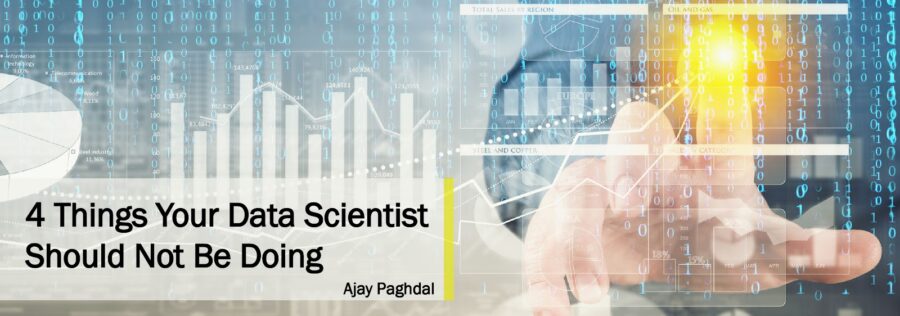
It’s the age of big data.
Sets of data so vast, so overwhelming that traditional data processing applications aren’t able to handle them.
In fact, according to statistics, more data has been produced just in the last couple of years than in the entire previous history of the human race.
What’s more is that big data is so proliferating that by 2020, 1.7 megabytes will be created each second for every human on the planet.

That’s a lot of data. So what’s an organization to do with it all?
Enter the data scientist.
These professionals are responsible for analyzing and interpreting data, then helping their employers put it to good use.
This requires a unique range of skills, including a love of math, algorithms and statistical modeling, along with insights into basic human psychology.
Not only that, but data scientists need to be great storytellers.
In other words, they have to be able to put their findings into context so they can identify trends and patterns based on various parameters, develop useful recommendations, and communicate them in a visual and non-technical way to company stakeholders.
It’s certainly a tall order. And that’s why these professionals are so in demand.
That said, the role of the data scientist is new to most organizations and can therefore be easily misunderstood.
To get the most out of your data scientists, make sure you’re not expecting the following from them.
![]()
Don’t confuse your data scientists with Enterprise Information Management professionals.
EIM professionals should be the ones defining and preparing data that a data scientist uses.
They should also be developing and implementing the business processes and practices used to manage the information created from an organization’s data.
![]()
Don’t expect your data scientists to maintain and safeguard data integrity.
They should be busy analyzing the data and extrapolating trends and insights.
IT auditors and QA analysts, on the other hand, are the ones who are responsible for using agile methods to identify and analyze any risks and exposures to an organization’s data.
As a data scientist spends time on the job, they will certainly learn more and more about the inner workings of the industry they’re working in.![]()
However, don’t require your data scientist to become an industry expert.
In fact, not having preconceived notions and ideas about the data being analyzed is actually a good thing – it can yield better results by removing any unconscious biases or assumptions that impact the process.
![]()
Data scientists are not magicians or wizards.
Although to the non-technical person, it can certainly seem like they are.
But they can’t conjure up the magic bullet your company needs to make millions more in profits and kill the competition.
Data scientists are people with incredibly strong technical skill sets…and with limitations.
It’s therefore important to have realistic expectations of your data scientists.
More and more companies today are relying on big data to have a positive impact on sales, operations and the workforce.
Just make sure when you hire a data scientist, you focus their energies on what they do best – analyzing data for actionable insights – and not the four areas above.
